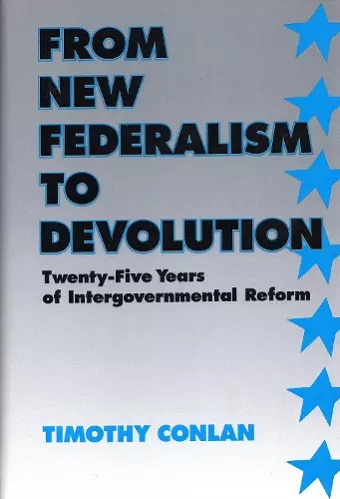From New Federalism to Devolution
Twenty-Five Years of Intergovernmental Reform
Format:Hardback
Publisher:Bloomsbury Publishing PLC
Published:1st Aug '98
Currently unavailable, and unfortunately no date known when it will be back

"
In the period from 1970 to the early 1990s, Republican leaders launched three major reforms of the federal system. Although all three initiatives advanced decentralization as a goal, they were remarkably different in their policy objectives, philosophical assumptions, patterns of politics, and policy outcomes. Expanding and updating his acclaimed book, New Federalism: Intergovernmental Reform from Nixon to Reagan (1988), Timothy Conlan provides a comprehensive look at intergovernmental reform from Nixon to the 104th Congress. The stated objectives of Republican reformers evolved from rationalizing and decentralizing an activist government, to rolling back the welfare state, to replacing it altogether. Conlan first explains why conservatives have placed so much emphasis on federal reform in their domestic agendas. He then examines Nixon's New Federalism, including management reforms and revenue sharing; analyzes the policies and politics of the ""Reagan revolution""; and reviews the legislative limitations and achievements of the 104th Congress. Finally, he traces the remarkable evolution of federalism reform politics and ideology during the past 30 years and provides alternative scenarios for the future of American federalism.
""Conlan tells the most important story about American government in the 1970s, 1980s, and 1990s -- that of efforts to reform and reduce the federal government's role. He indicates how these attempts succeeded, how they failed, and why. This book is essential reading for any expert in or student of our nation's policies and politics." —David Beam, Illinois Institute of Technology
ISBN: 9780815715320
Dimensions: 235mm x 158mm x 31mm
Weight: 717g
392 pages